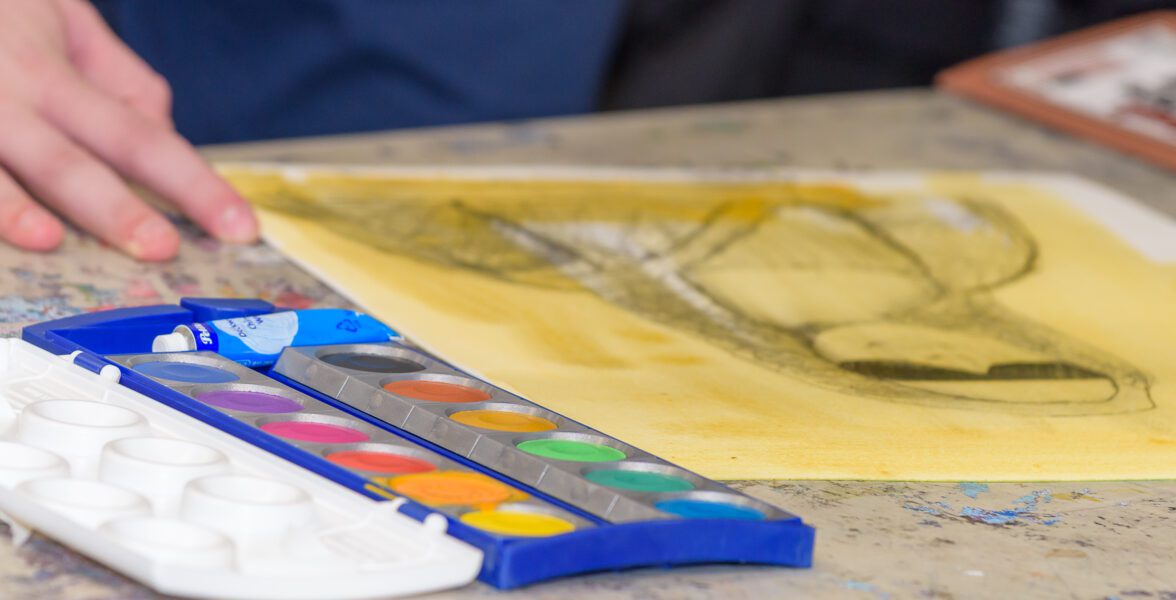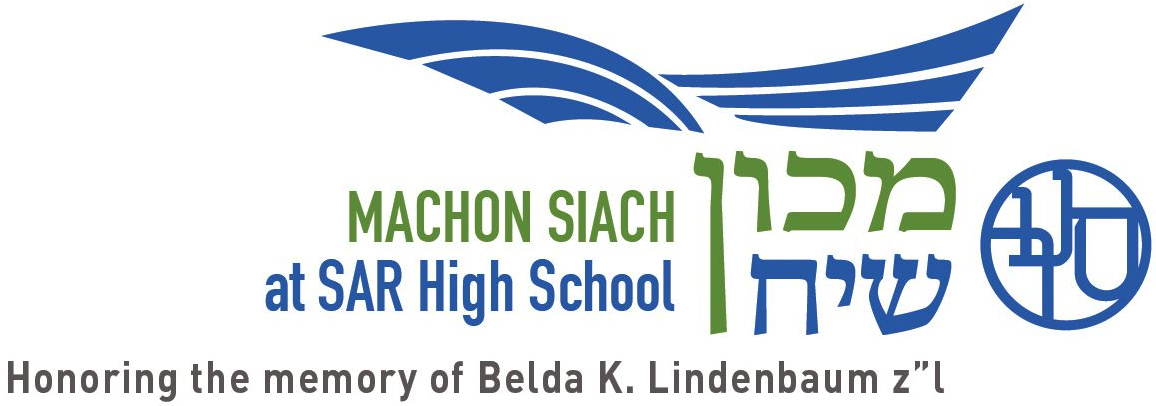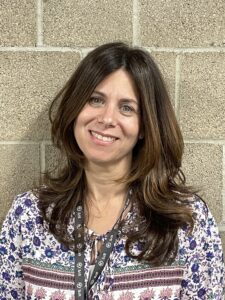
Arts Appreciation: An Essential Element of Jewish Education
Teaching English is my calling and my training–I’ve done it for over thirty years. Teaching the same works every year for so many years never gets boring, though, because revisiting a great work of literature is like listening to a Beethoven symphony or viewing Van Gogh’s Starry Night–a truly great work of art is always awe-inspiring. And while I love teaching English, I’m equally in love with my side gig: facilitating arts appreciation of all kinds, both in and out of the classroom, as an AP Art History teacher and co-coordinator of the SARts outbound program.
SAR High School offers students a fantastic opportunity to experience New York City’s cultural landscape with this program. After a Covid hiatus, Rabbi Kenny Birnbaum and I regularly accompany 40+ students after school to the opera, the ballet, the NY Philharmonic and Broadway shows, among other events throughout the school year. It’s impressive to see high school students eagerly carving out time in their very busy academic, co-curricular and social lives to appreciate the arts; it’s a treat to explain our program and to introduce our school to the multi-generational patrons seated near us, all of whom are not only impressed with our students’ middot but thrilled to see young people supporting the performing arts.
I have always had a passion for the arts. My parents introduced me to classical music as a child. One of my strongest and formative musical memories is Franz Schubert’s Trout Quintet, which my father played quite often on the turntable in his study as he worked; this was my early introduction to music that could actually depict a scene from nature. My mother, a pianist and cellist in her youth, insisted on music lessons for her children. I studied piano with a teacher who employed the Suzuki method, involving listening to rather than sight reading music, and so I too had records and cassettes of the pieces I played, offering me early exposure to Bach, Mozart, Haydn and others. My small Jewish day school in San Diego participated in Young People’s Concerts at the San Diego Symphony; a member of our community was the first violinist and not only prepared us for each program but created and led our school’s orchestra, for which I was the pianist (and occasional percussionist). And on Friday afternoons, we would often play for the residents of the Hebrew Home. Only now do I realize how much our presence must have uplifted their spirits.
I was inspired to love visual art as a child as well, staring at the modern art prints on the walls of my grandparents’ apartment. The surrealist paintings by Ben Shahn and Joan Miro were the subjects of endless fascination for me as I invented the stories they suggested. Looking back, I marvel at my immigrant, Yiddish-speaking grandparents’ sophisticated taste and credit them for my lifelong love of painting and sculpture, along with my mother’s lessons about the Impressionists (especially the way the Jewish Pisarro was bullied by the antisemitic Degas) and toting me to the San Diego Museum of Art.
When we got married, my husband appointed me our family’s “Minister of Culture,” and we raised a family of actors, musicians, dancers, aspiring filmmakers,and writers.And my title has followed me into my professional life as well. Wherever I have taught, arts appreciation has been an integral part of both my classroom and my work outside it.
But what is it that makes arts experiences so important and meaningful? Why do we need them in our lives, and why do I insist on introducing them to my students? Putting that feeling into words can be difficult. I recently stumbled upon the work of Dacher Keltner, a psychologist at the University of California, Berkeley and author of Awe: The New Science of Everyday Wonder and How It Can Transform Your Life. What we are really experiencing when we lose ourselves in something beautiful is awe. According to Keltner, awe is “the feeling of being in the presence of something vast that transcends your understanding of the world.” In the age of TikTok and Instagram, where we might spend hours scrolling in solitude, searching out experiences of awe is especially vital. As Dr. Keltner told the New York Times last year, “We are at this cultural moment of narcissism and self-shame and criticism and entitlement; awe gets us out of that. It does this by helping us get out of our own heads and realize our place in the larger context, our communities.”
My A.P. Art History students’ delight in seeing the 15th century painting we had studied up close in real life? An awe moment. The oohs and aahs of the SARts’ participants seeing the inside of the Metropolitan Opera house for the first time? Truly awesome. 40 teenagers, phones silenced and put away, sitting with over 3000 others as the awe-inspiring notes of Bizet’s Carmen envelop them? A moment that will become a life-altering experience for them.
My most recent moment of awe was this past October. I had booked tickets for SARts to see Gutenberg the Musical, a two-man comedy ostensibly about the inventor of the printing press but really a vehicle for Josh Gad and Andrew Rannells to satirize Broadway musicals. I was unsure about the optics and the appropriateness of seeing a musical comedy while we were all grieving and still blindsided by the war. But having the space to laugh along with hundreds of other theatergoers and temporarily escape was a gift, and at the end of the show, we all felt true awe when Lin Manuel Miranda made a guest appearance at the end of the play–the cheering and standing ovation felt ethereal.
One of the strongest arguments for arts appreciation in the Jewish day school comes from Rav Abraham Isaac Kook. He famously commented that when he lived in London, he would visit the National Gallery, and he most loved the work of Rembrandt. He said, “When God created the light [on the first day], it was so strong and luminous that it was possible to see from one end of the world to the other… From time to time there are great men whom God blesses with a vision of that hidden light. I believe that Rembrandt was one of them, and the light in his paintings is that light which God created….[]” Awe-inspiring arts experiences of all kinds expose us to the beauty that, to Rav Kook, ultimately emanates from the divine. They are thus an integral component of our students’ spiritual growth.



